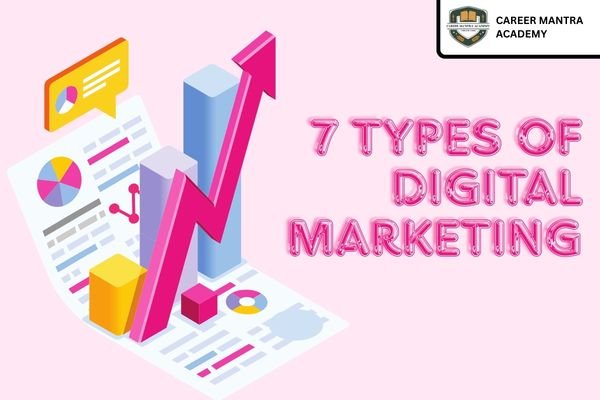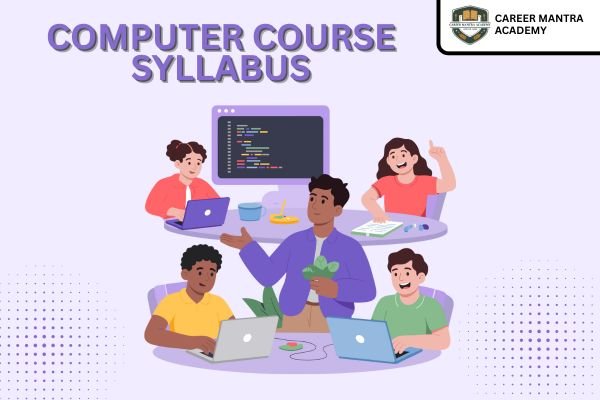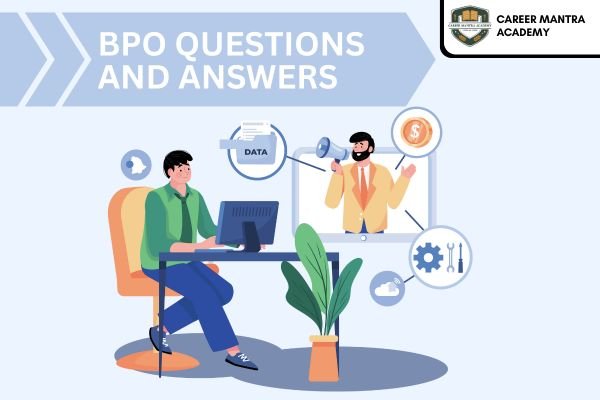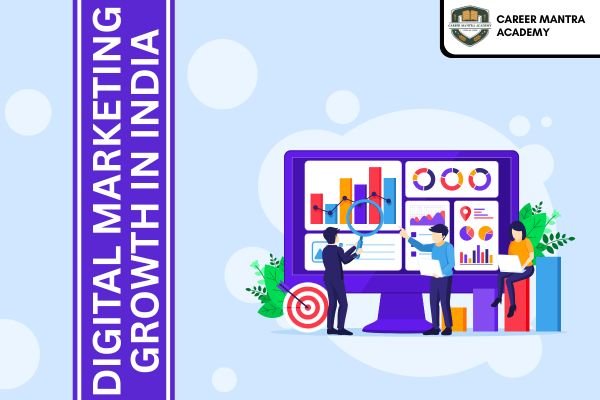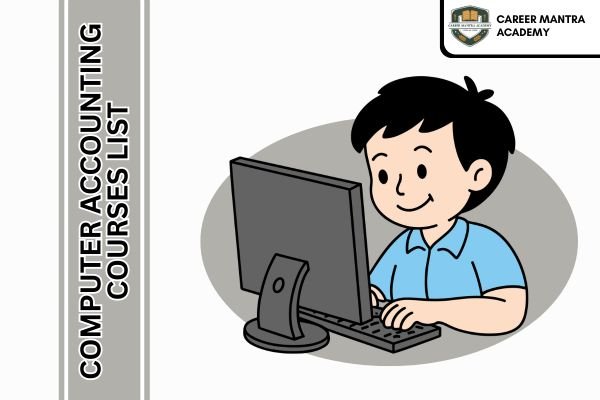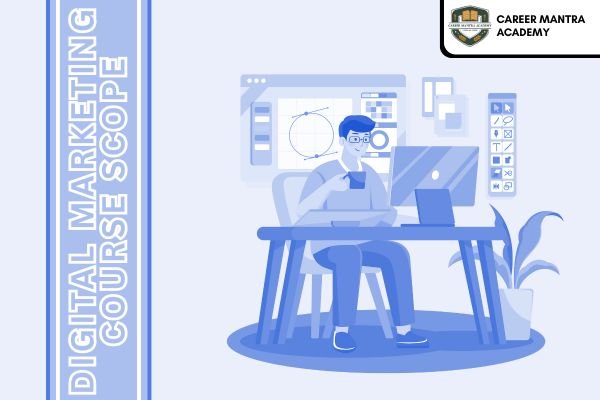Understanding the 7 Types of Digital Marketing: Importance, Careers & Growth
7 Types of Digital Marketing For Applying Digital Marketing Course Click Here… What Is Digital Marketing? Digital marketing is the use of the internet and other digital platforms to promote brands, products, or services. Online advertising, email marketing, content marketing, social media marketing, and search engine optimization (SEO) are all part of it. Digital marketing helps businesses get in touch with the people they want to reach through websites, search engines, social media, and mobile apps. It lets you interact with people in real time, track performance, and target your audience better than traditional marketing. Digital marketing helps businesses get more people to know about their brand, get more leads, get more people to visit their website, and make more sales. Digital marketing is now a must for businesses of all sizes to grow and compete online. Why Is Digital Marketing Important for Businesses and Careers? Digital marketing plays a crucial role in the growth of modern businesses and offers excellent career opportunities. Its importance can be understood through the following points: What Skills Are Required to Build a Career in Digital Marketing in India? To build a successful career in digital marketing in India, professionals need a mix of technical, creative, and analytical skills. Below are the key skills required, explained in points: What Are the 7 Types of Digital Marketing? Digital marketing is a broad field that includes multiple strategies used by businesses to promote their products and services online. Each type of digital marketing serves a different purpose, but together they help brands increase visibility, attract customers, and generate revenue. Below are the 7 main types of digital marketing, explained in detail. 1. Search Engine Optimization (SEO) What Is SEO? Search Engine Optimization (SEO) is the process of improving a website’s visibility on search engines like Google, Bing, and Yahoo. The main goal of SEO is to rank a website higher in organic (unpaid) search results for relevant keywords. When users search for information, products, or services, SEO helps ensure that a website appears on the first page of search results. Higher rankings lead to more website traffic, better brand credibility, and increased chances of conversions. SEO focuses on understanding how search engines work and what users are searching for. It involves optimizing website content, structure, and technical elements to match search engine guidelines. Types of SEO Benefits of SEO 2. Search Engine Marketing (SEM) / Pay-Per-Click (PPC) What Is SEM? Search Engine Marketing (SEM) is a paid digital marketing strategy used to increase a website’s visibility on search engine results pages. It mainly involves Pay-Per-Click (PPC) advertising, where advertisers pay a fee each time their ad is clicked. SEM allows businesses to appear at the top of search results instantly. Unlike SEO, which takes time, SEM provides immediate results and is ideal for promoting products, services, or offers quickly. How Google Ads Work Google Ads is the most popular SEM platform. Advertisers bid on keywords relevant to their business. When users search for those keywords, Google displays ads based on factors like bid amount, ad quality, and relevance. Advertisers only pay when users click on their ads. Google Ads offers various ad formats, including: Advantages of Paid Advertising 3. Social Media Marketing (SMM) What Is Social Media Marketing? Social Media Marketing (SMM) involves promoting brands, products, or services through social media platforms. It helps businesses connect with their audience, build brand awareness, and drive traffic to their websites. SMM includes both organic content and paid advertising. Popular Social Media Platforms Organic vs Paid Social Media Why Businesses Use SMM 4. Content Marketing What Is Content Marketing? Content marketing is a strategy focused on creating and sharing valuable, relevant, and consistent content to attract and retain a target audience. Instead of direct selling, content marketing educates, informs, and engages users, building trust over time. The main goal of content marketing is to guide potential customers through the buyer’s journey and convert them into loyal customers. Types of Content Role of Content in Branding 5. Email Marketing What Is Email Marketing? Email marketing is the process of sending targeted messages to a group of users through email. It is one of the most effective digital marketing methods for nurturing leads and maintaining customer relationships. Email marketing helps businesses communicate directly with their audience. Types of Emails Benefits for Customer Retention 6. Affiliate Marketing Meaning of Affiliate Marketing Affiliate marketing is a performance-based marketing strategy where individuals or affiliates earn a commission by promoting a company’s products or services. Affiliates use unique tracking links, and they earn money when users make purchases through those links. How Affiliate Programs Work Examples of Affiliate Platforms Affiliate marketing is popular among bloggers, YouTubers, and digital marketers. 7. Influencer Marketing What Is Influencer Marketing? Influencer marketing involves collaborating with influencers who have a strong following on social media platforms. Influencers promote products or services to their audience, helping brands reach potential customers through trusted recommendations. Micro vs Macro Influencers Why Brands Trust Influencers Which Type of Digital Marketing Is Best for Beginners? Search Engine Optimization (SEO) and Social Media Marketing (SMM) are the best kinds of digital marketing for beginners to learn. SEO is a great skill for beginners because it helps them learn how websites, keywords, and search engines work. Social media marketing is also good for beginners because it focuses on making content, interacting with people, and using well-known sites like Facebook and Instagram. Another good choice is content marketing, which is great for people who like to write or make videos. These fields don’t require a lot of money to get started, give you hands-on experience, and help you grow your career over time, which makes them great for people who are new to digital marketing. Career Opportunities in Digital Marketing: Job Role Key Responsibilities Skills Required Average Salary in India (Annual) Digital Marketing Executive Manage online campaigns and marketing activities SEO, SMM, analytics basics ₹2.5 – ₹4 LPA SEO Executive Improve website ranking on search engines Keyword research,

